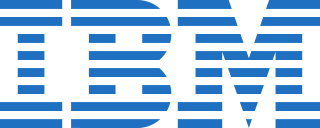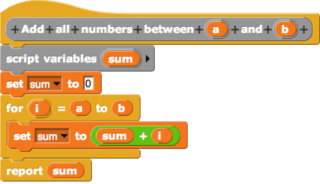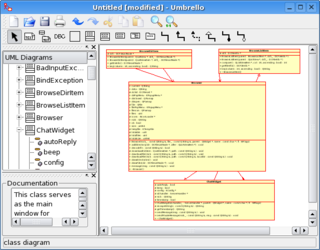Turbo Pascal is a software development system that includes a compiler and an integrated development environment (IDE) for the Pascal programming language running on CP/M, CP/M-86, and DOS. It was originally developed by Anders Hejlsberg at Borland, and was notable for its extremely fast compiling times. Turbo Pascal, and the later but similar Turbo C, made Borland a leader in PC-based development.

Data mining is the process of extracting and discovering patterns in large data sets involving methods at the intersection of machine learning, statistics, and database systems. Data mining is an interdisciplinary subfield of computer science and statistics with an overall goal of extracting information from a data set and transforming the information into a comprehensible structure for further use. Data mining is the analysis step of the "knowledge discovery in databases" process, or KDD. Aside from the raw analysis step, it also involves database and data management aspects, data pre-processing, model and inference considerations, interestingness metrics, complexity considerations, post-processing of discovered structures, visualization, and online updating.
HCL Notes and HCL Domino are the client and server, respectively, of a collaborative client-server software platform formerly sold by IBM, now by HCL Technologies.
Bytecode, also termed p-code, is a form of instruction set designed for efficient execution by a software interpreter. Unlike human-readable source code, bytecodes are compact numeric codes, constants, and references that encode the result of compiler parsing and performing semantic analysis of things like type, scope, and nesting depths of program objects.

Db2 is a family of data management products, including database servers, developed by IBM. They initially supported the relational model, but were extended to support object–relational features and non-relational structures like JSON and XML. The brand name was originally styled as DB/2, then DB2 until 2017 and finally changed to its present form.
The Pick operating system is a demand-paged, multiuser, virtual memory, time-sharing computer operating system based around a MultiValue database. Pick is used primarily for business data processing. It is named after one of its developers, Richard A. (Dick) Pick.

In computing, a visual programming language is any programming language that lets users create programs by manipulating program elements graphically rather than by specifying them textually. A VPL allows programming with visual expressions, spatial arrangements of text and graphic symbols, used either as elements of syntax or secondary notation. For example, many VPLs are based on the idea of "boxes and arrows", where boxes or other screen objects are treated as entities, connected by arrows, lines or arcs which represent relations.

Computer-aided software engineering (CASE) is the domain of software tools used to design and implement applications. CASE tools are similar to and were partly inspired by computer-aided design (CAD) tools used for designing hardware products. CASE tools were used for developing high-quality, defect-free, and maintainable software. CASE software is often associated with methods for the development of information systems together with automated tools that can be used in the software development process.

OpenEdge Advanced Business Language, or OpenEdge ABL for short, is a business application development language created and maintained by Progress Software Corporation (PSC). The language, typically classified as a fourth-generation programming language, uses an English-like syntax to simplify software development. The language was called PROGRESS or Progress 4GL up until version 9, but in 2006 PSC changed the name to OpenEdge Advanced Business Language in order to overcome a presumed industry perception that 4GLs were less capable than other languages. A subset of the language, called SpeedScript, is used in the development of web applications.
A GIS software program is a computer program to support the use of a geographic information system, providing the ability to create, store, manage, query, analyze, and visualize geographic data, that is, data representing phenomena for which location is important. The GIS software industry encompasses a broad range of commercial and open-source products that provide some or all of these capabilities within various information technology architectures.
This is an overview of software support for the OpenDocument format, an open document file format for saving and exchanging editable office documents.
CDS/ISIS is a software package for generalised Information Storage and Retrieval systems developed, maintained and disseminated by UNESCO. It was first released in 1985 and since then over 20,000 licences have been issued by UNESCO and a worldwide network of distributors. It is particularly suited to bibliographical applications and is used for the catalogues of many small and medium-sized libraries. Versions have been produced in Arabic, Chinese, English, French, German, Portuguese, Russian and Spanish amongst other languages. UNESCO makes the software available free for non-commercial purposes, though distributors are allowed to charge for their expenses.
A MultiValue database is a type of NoSQL and multidimensional database, typically considered synonymous with PICK, a database originally developed as the Pick operating system.
Aldon is a business unit of Rocket Software. It develops, manufactures, licenses and supports software change management products for the enterprise application lifecycle management (ALM) and software change management (SCM) markets.
A scripting language or script language is a programming language for a runtime system that automates the execution of tasks that would otherwise be performed individually by a human operator. Scripting languages are usually interpreted at runtime rather than compiled.
openTMS is an acronym for Open Source Translation Management System.
Knowledge extraction is the creation of knowledge from structured and unstructured sources. The resulting knowledge needs to be in a machine-readable and machine-interpretable format and must represent knowledge in a manner that facilitates inferencing. Although it is methodically similar to information extraction (NLP) and ETL, the main criterion is that the extraction result goes beyond the creation of structured information or the transformation into a relational schema. It requires either the reuse of existing formal knowledge or the generation of a schema based on the source data.
Rocket U2 is a suite of database management (DBMS) and supporting software now owned by Rocket Software. It includes two MultiValue database platforms: UniData and UniVerse. Both of these products are operating environments which run on current Unix, Linux and Windows operating systems. They are both derivatives of the Pick operating system. The family also includes developer and web-enabling technologies including SB/XA, U2 Web Development Environment (WebDE), UniObjects connectivity API and wIntegrate terminal emulation software.




